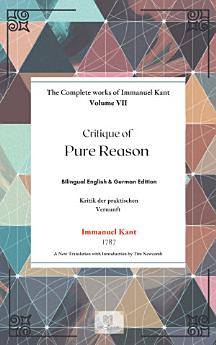Critique of Pure Reason
Rreth këtij libri elektronik
This is Volume VII in The Complete Works of Immanuel Kant from LP.
Kant's Critique of Pure Reason lays the foundation of his Systematic Metaphysics published across a dozen works with the singular aim of 'fixing' the field by reconciling Rationalism, Idealism, and Empiricism to move Metaphysics into a full form of Science, much, in the same manner, the Greeks did to Logic or The Renaissance logicians to the hard sciences. Kant sparked a metaphysical revolution which he understands as akin to the Copernican revolution. The question of how the iterations of the transcendent 'I' through time and space can 'know' anything (make synthetic a priori judgments) with any level of certainty takes the proscenium in the Critique.
David Hume's fundamental error in Kant's view is that he assumes a Rationality which is Techne without Telos, a description only of what is, not what should be. To this end, he uses a Greek conception of Rationality as logos within a Platonic Ontology, splitting reality into two subdivisions between form and sense- perception, between Numinal and a phenomenological world. As physics is pure science, metaphysics is pure philosophy; "Pure knowledge of reason from mere concepts is called pure philosophy, or metaphysics... Metaphysics, then, both of nature and of morals, and especially the critique of reason venturing out on its own wings, which precedes it in a propaedeutic way, are actually the only things that we can call philosophy in the true sense of the word".








